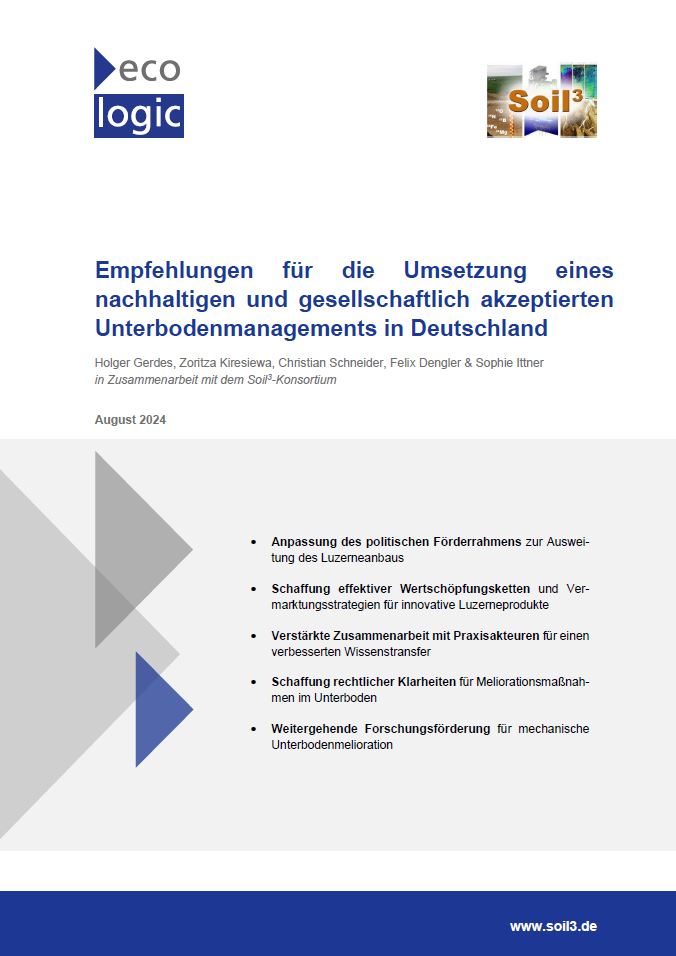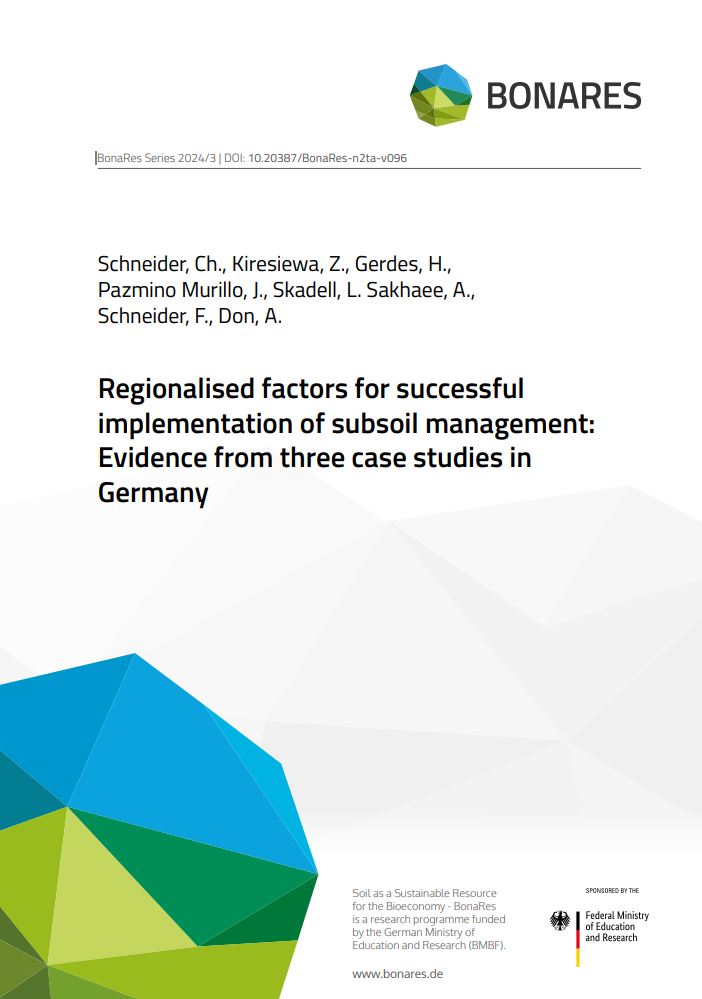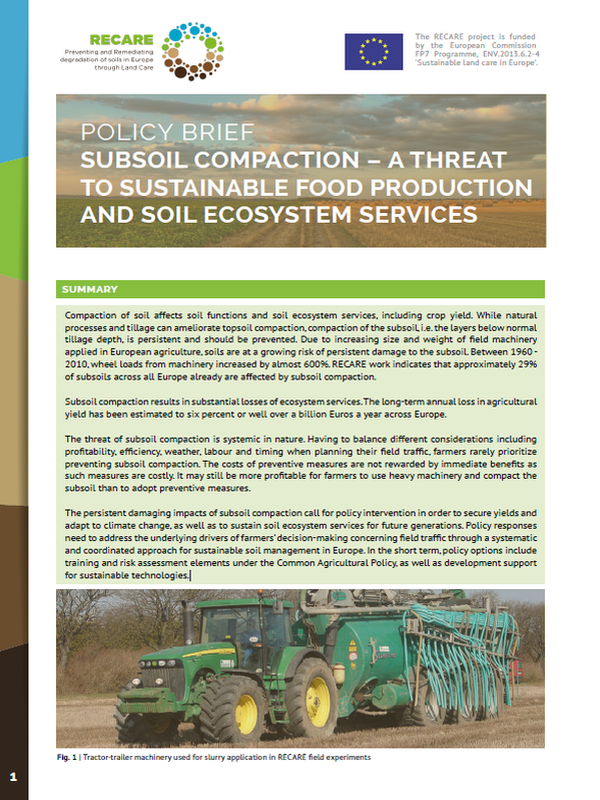Empfehlungen für die Umsetzung eines nachhaltigen und gesellschaftlich akzeptierten Unterbodenmanagements in Deutschland
- Publication
- Citation
Gerdes, Holger, Kiresiewa, Zoritza, Schneider, Christian, Dengler, Felix, und Ittner, Sophie (2024): Empfehlungen für die Umsetzung eines nachhaltigen und gesellschaftlich akzeptierten Unterbodenmanagements in Deutschland. Ecologic Institut, Berlin.
This policy brief outlines recommendations for sustainable and socially accepted subsoil management in Germany. Subsoil, located below the plowed topsoil layer, holds essential nutrients and water reserves crucial for plant growth and sustainable bioeconomy practices. The Soil³ project (2015–2025) investigated methods to enhance subsoil usage, focusing on increasing plant root access to this layer without compromising its ecological functions.
The project explored two primary strategies:
- Biological Subsoil Improvement: By cultivating deep-rooted plants like alfalfa, biopores are created, facilitating resource access for future crops.
- Mechanical Subsoil Improvement: Strip-loosening the subsoil while mixing in organic material reduces physical resistance and improves water and nutrient availability.
Results showed that both methods can improve yields, especially in regions with compacted soils or high drought risk. However, implementation faces barriers, including high costs and regulatory ambiguities regarding compost use in subsoils.
Key policy recommendations include:
- Expanding support for alfalfa cultivation due to its multifunctional benefits.
- Developing value chains for innovative alfalfa products.
- Enhancing collaboration for better knowledge transfer between researchers and agricultural practitioners.
- Clarifying legal frameworks for subsoil interventions.
- Increasing research funding to further explore subsoil management techniques across diverse conditions.
These recommendations are based on findings from field trials, surveys, and stakeholder discussions with farmers, advisors, government officials, and scientists.







